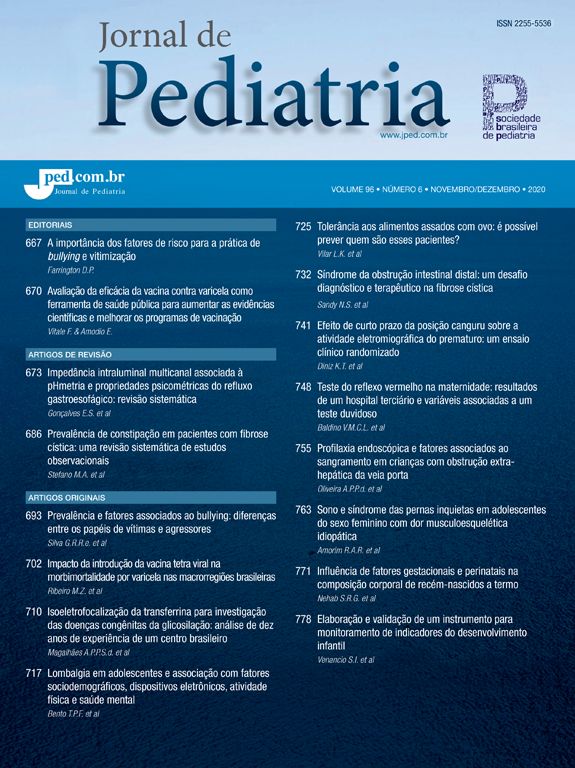To determine the prevalence of exclusive breastfeeding during the first 3 months of life and its determinant factors in a city in the South region of Brazil.
MethodsProspective study of a cohort of babies born between September 2002 and May 2003 in the city of Pelotas, RS. Data were obtained in interviews, at maternity units and during home visits, with mothers of babies aged between 1 and 3 months. Factors related to the cessation of breastfeeding were subjected to univariate, bivariate and multivariate analysis.
ResultsNine hundred and forty mothers of children aged 3 months or less were interviewed, 39% of whom were still exclusively breastfeeding and around 1/3 of whom no longer breastfed. Multivariate analysis by logistic regression demonstrated a significant association between interruption of exclusive breastfeeding before 3 months and maternal employment, use of a pacifier, low family income (between one and three times the minimum wage), and less than 5 years' paternal education.
ConclusionsExclusive breastfeeding throughout the first 3 months of life is an uncommon practice among the population of Pelotas, RS, in particular when the mother works away from home, the father has little education and the child is given a pacifier, which reinforces the need to continue stimulating exclusive breastfeeding during the first months of life.
Determinar a prevalência do aleitamento materno exclusivo nos 3 primeiros meses de vida e os fatores determinantes em uma cidade da Região Sul do Brasil.
MétodosEstudo de coorte prospectivo, envolvendo bebês nascidos entre setembro de 2002 e maio de 2003 na cidade de Pelotas (RS). Os dados foram obtidos através de entrevistas, nas maternidades e no domicílio, com mães de bebês entre 1 e 3 meses de idade. Para análise dos fatores relacionados à interrupção do aleitamento materno, foram realizadas análises univariada, bivariada e multivariada.
ResultadosForam entrevistadas 940 mães de bebês com até 3 meses de idade, sendo que 39% destes recebiam aleitamento exclusivo e cerca de 1/3 já não mamava mais. Após análise multivariada por regressão logística, trabalho materno, uso de chupeta, renda familiar entre um e três salários mínimos e escolaridade paterna menor que 5 anos mostraram associação significativa com interrupção do aleitamento exclusivo antes dos 3 meses de vida.
ConclusãoO aleitamento materno exclusivo nos primeiros 3 meses é pouco praticado na população de Pelotas (RS), em especial quando a mãe trabalha fora do lar, o pai tem pouca escolaridade e a criança faz uso de chupeta, o que reforça a necessidade de se continuar estimulando a amamentação exclusiva nos primeiros meses de vida.








